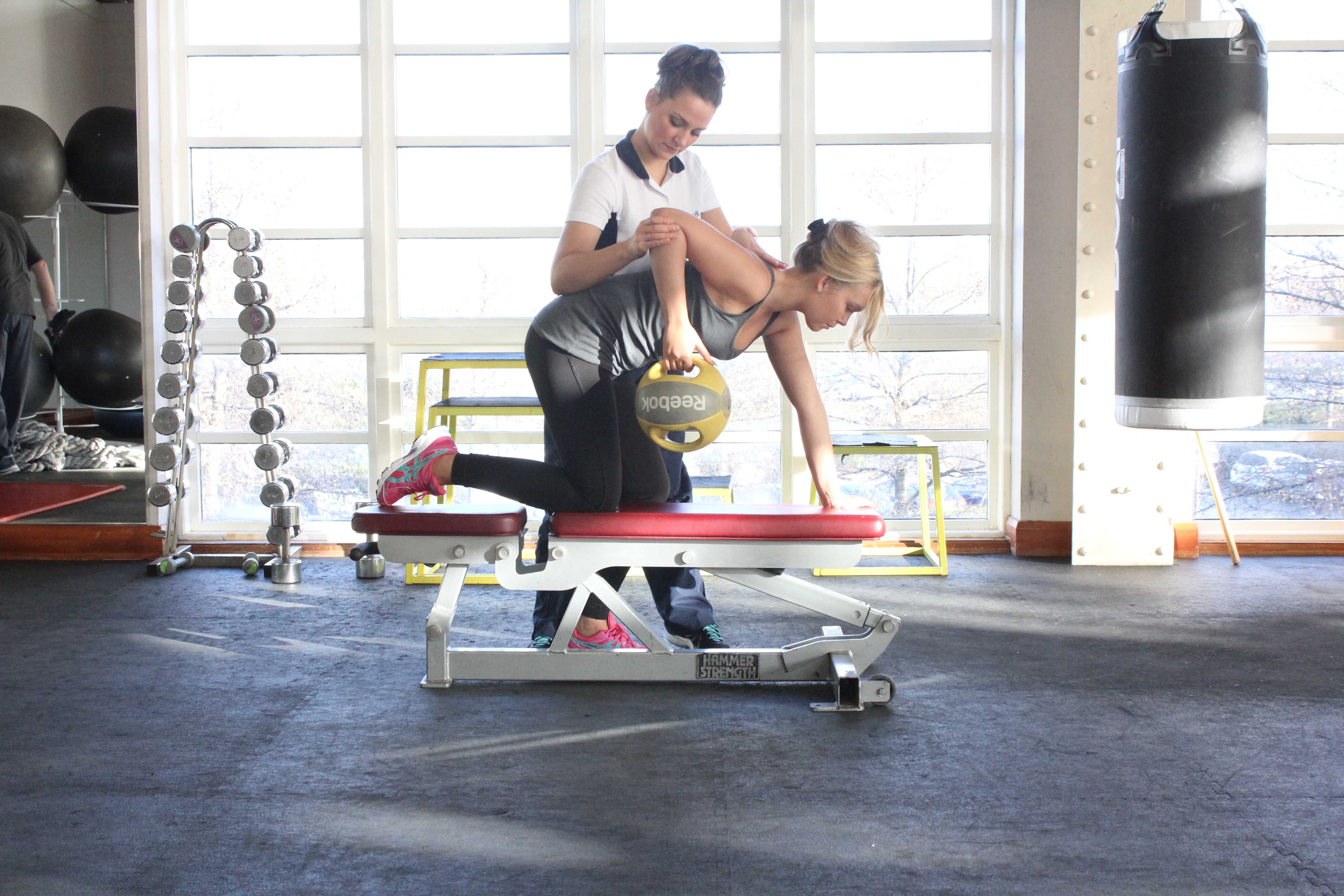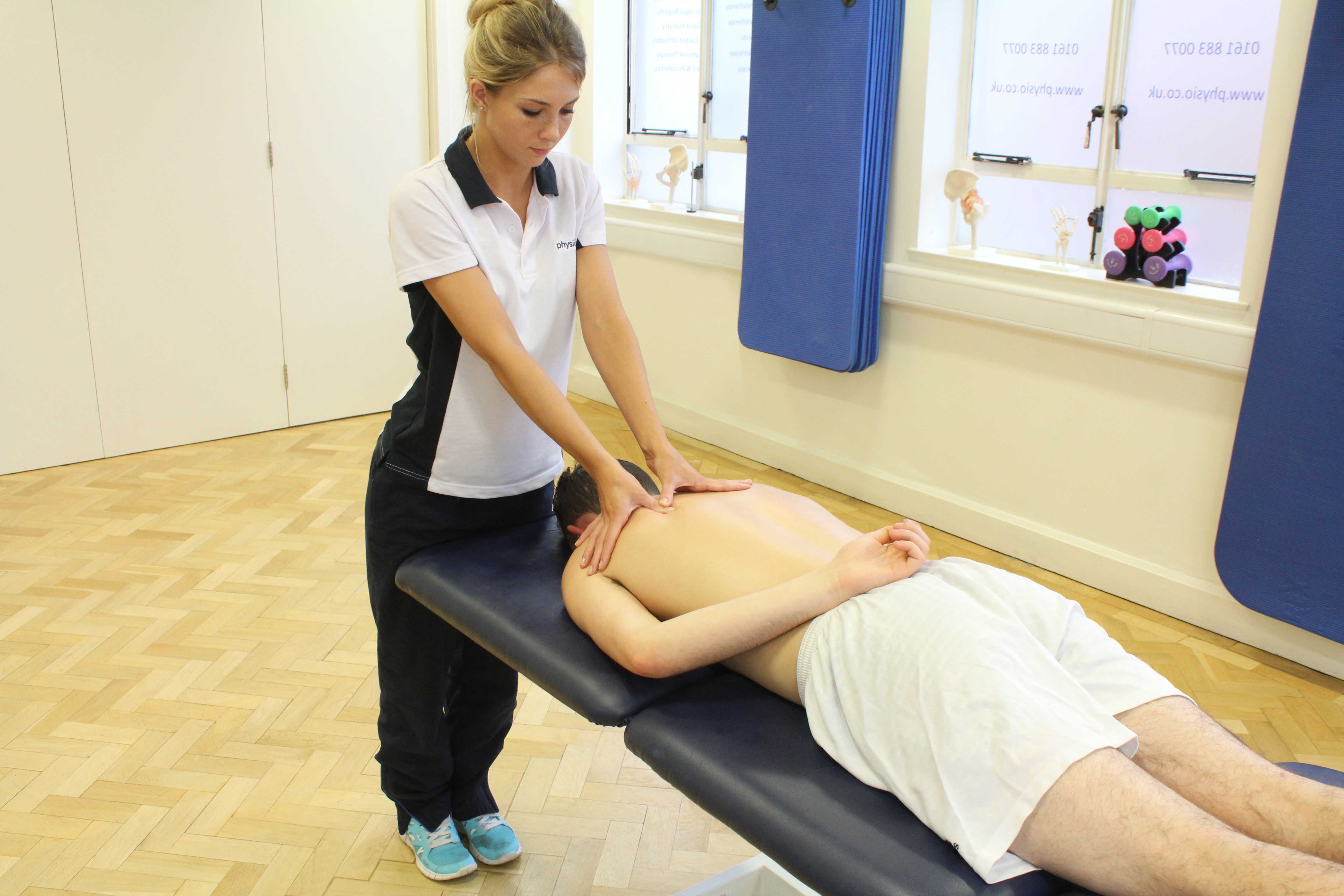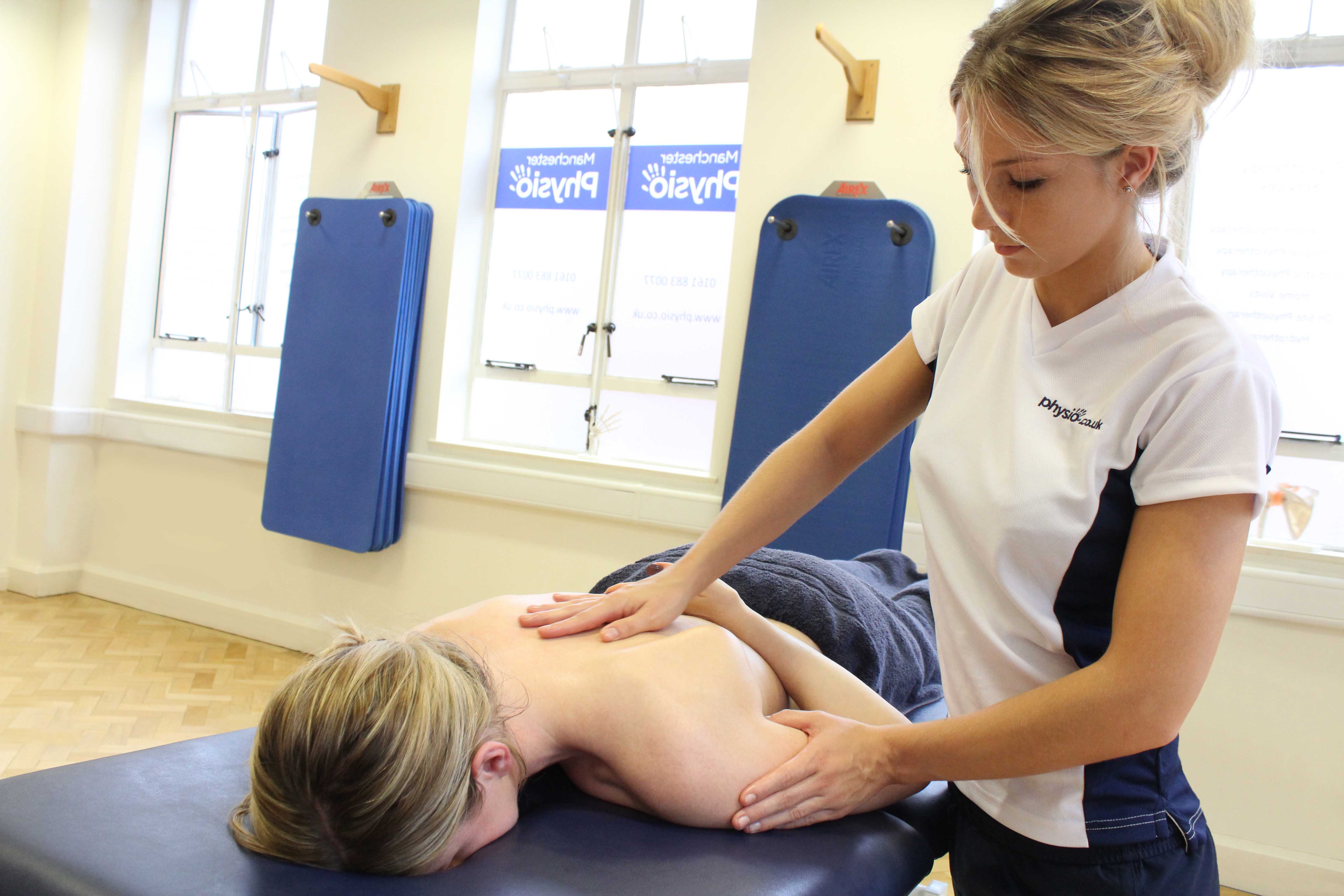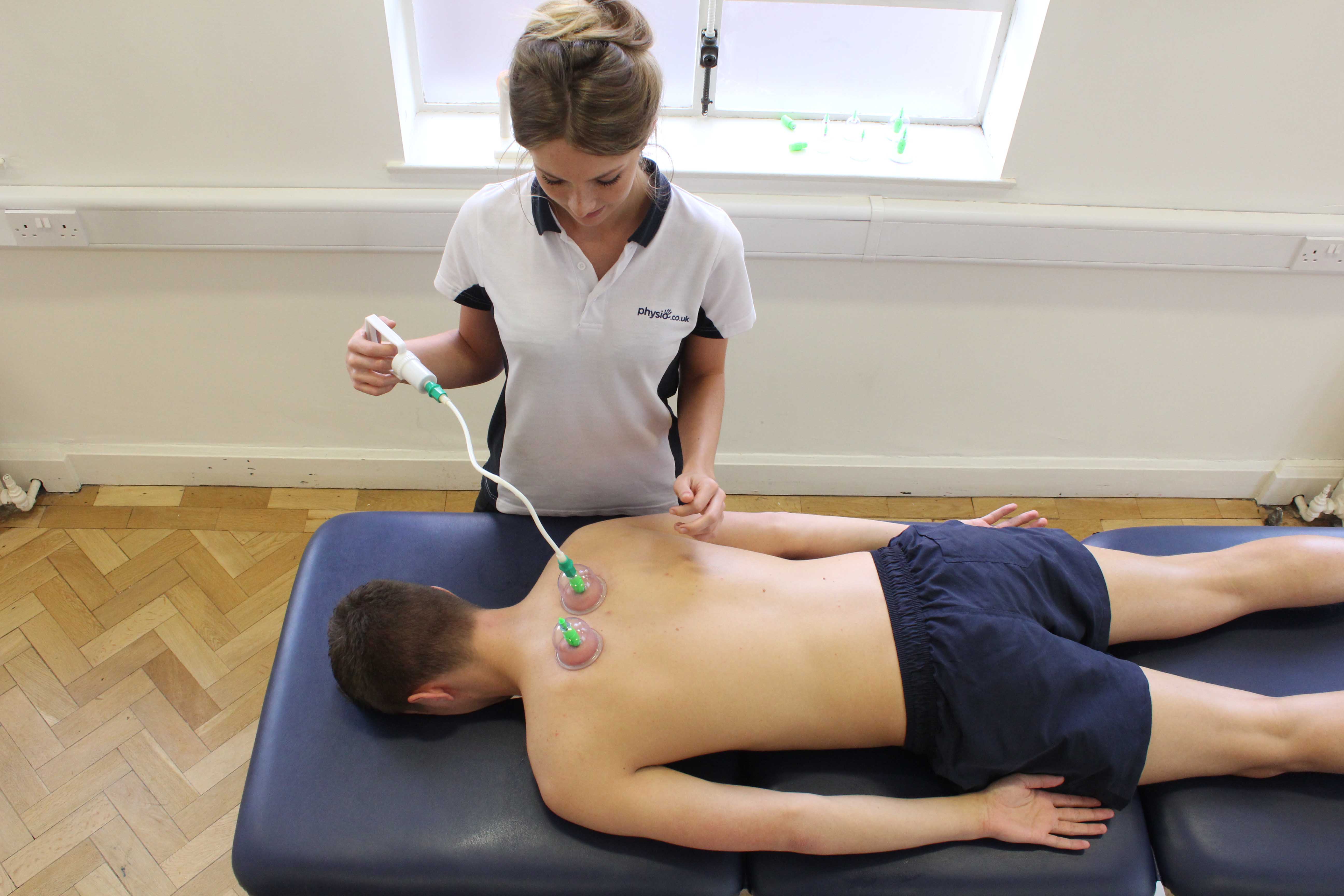What are thoracic intervertebral joint disorders?
The bones that make up the spine are called the vertebrae. Each vertebra is joined to the vertebra above and the vertebra below by three separate joints. A thoracic intervertebral joint disorder is an injury affecting one of these three joints in the vertebrae of the upper back. Physiotherapy can successfully treat thoracic intervertebral joint disorders.
 Above: Progressive strengthening exercises isolating the upper back muscles
Above: Progressive strengthening exercises isolating the upper back musclesHow do thoracic intervertebral joint disorders occur?
Thoracic intervertebral joint disorders can occur if the upper back is excessively rotated or bent forwards. This overstretches the ligaments that support the joint, causing a thoracic intervertebral joint sprain. The structures supporting the thoracic intervertebral joints can also be overstretched due to poor posture. Slumped sitting can overstretch the structures supporting the joints, resulting in a thoracic intervertebral joint disorder.
What are the symptoms of a thoracic intervertebral joint disorder?
A thoracic intervertebral joint disorder causes a dull ache that is made worse by movements of the trunk. Stiffness in the upper back may also be experienced. Other symptoms include:
 Above: Trigger point massage of upper back muscle
Above: Trigger point massage of upper back muscleWhat should I do if I have a thoracic intervertebral joint disorder?
If you have or suspect you have a thoracic intervertebral joint disorder, you should arrange a physiotherapy assessment.
Physiotherapy treatment for thoracic intervertebral joint disorders.
The assistance of a physiotherapist is very important in the treatment of thoracic intervertebral joint disorders. Initially, they can diagnose your problem and devise a treatment plan specific to you. This may involve activity modification, using anti-inflammatory medications, electrotherapy treatment and thoracic intervertebral joint mobilisations or stretches.
Other physiotherapy treatments may include:
 Above: Soft tissue massage of the upper back muscles
Above: Soft tissue massage of the upper back musclesWhat shouldn’t I do if I have a thoracic intervertebral joint disorder?
If you have or suspect you have a thoracic intervertebral joint disorder, you should not ignore it. This may lead to your injury getting worse and slowing your recovery. You should also avoid activities that aggravate your pain.
Could there be any long-term effects from a thoracic intervertebral joint disorder?
Thoracic intervertebral joint disorders do not produce any long-term effects. Recovery usually takes place in a number of weeks.
 Above: Cupping massage technique applied to the upper back muscles
Above: Cupping massage technique applied to the upper back musclesTo arrange a physiotherapy assessment call Physio.co.uk on 0330 088 7800 or book online.

 0330 088 7800
0330 088 7800

































